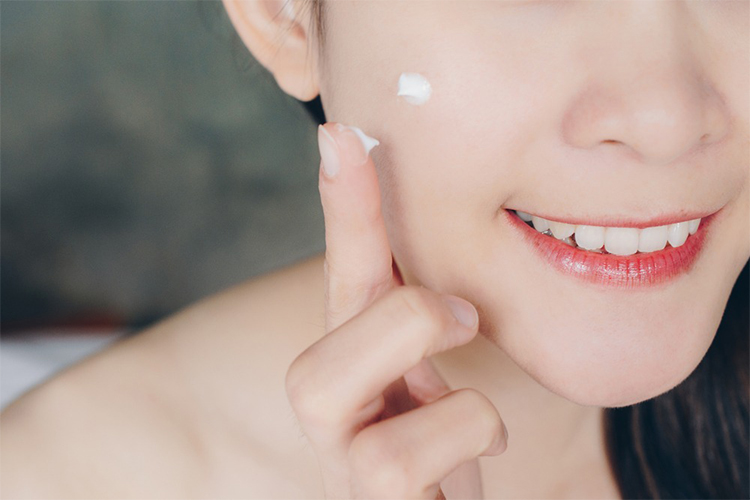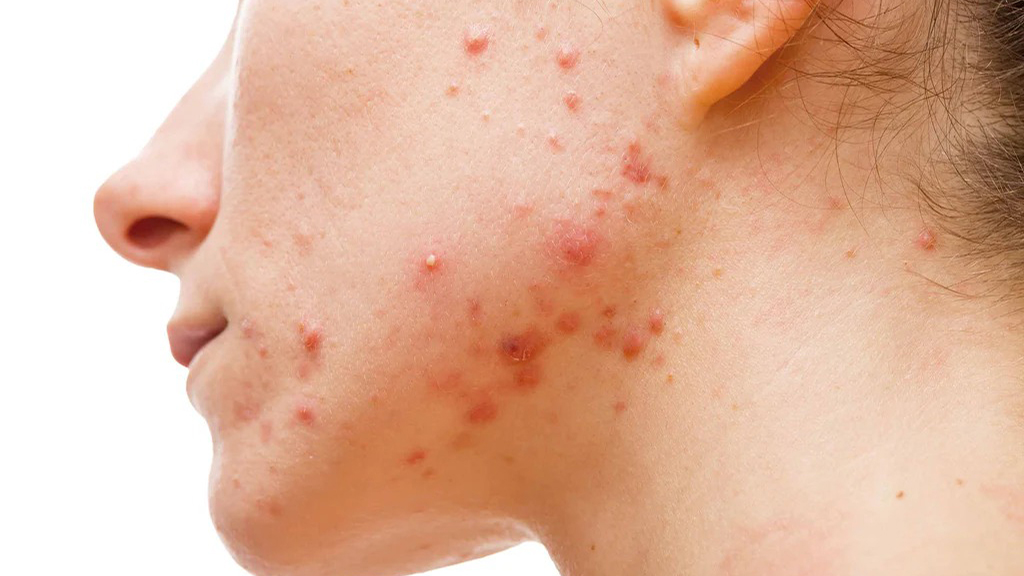Acne vulgaris is a common skin condition that can affect people of all ages. Unfortunately, because cystic, pustular, nodular, and hormonal acne requires medical attention, most of us turn to questionable ingredients for spot treatment. One such ingredient is hydrocortisone. But can hydrocortisone be used for acne?
This corticosteroid is not a traditional acne cream. It is commonly used to relieve itching, swelling, and irritation caused by skin conditions like eczema, psoriasis, and insect bites (1). Although this synthetic acne cream won’t cure acne, it can help relieve pain and irritation. This article looks at how hydrocortisone can help with acne, its safety and dangers, and safer options. Keep scrolling!
What is hydrocortisone?
Hydrocortisone is a corticosteroid and helps reduce skin inflammation. Cortisol is a steroid hormone and when used as a drug it is called hydrocortisone. This mild OTC steroid is mainly used to relieve itchy or irritated skin due to rashes and bug bites. Although commonly used to relieve acne, hydrocortisone is not a traditional acne medication because it does not affect acne-causing bacteria or sebum production or other hormonal factors and helps in acne prevention. How does it work then? Keep scrolling to understand.

Hydrocortisone for Acne: Does it Work?
Hydrocortisone cream is not prescribed to treat acne. However, one can use it to reduce inflammation, redness, and discomfort caused by acne. Like any topical corticosteroid, hydrocortisone has an anti-inflammatory effect and may provide temporary relief by reducing inflammation.
Steroids like hydrocortisone work well with topical acne medications like benzoyl peroxide (2). However, when used alone, hydrocortisone can cause side effects. Here are some safety issues to consider before using this topical steroid.
Is topical use of hydrocortisone safe for acne?
The Food and Drug Administration (FDA) approves topical hydrocortisone as a prescription drug to treat inflammatory, acne-prone skin conditions (3). While topical corticosteroids may work well with acne medications, steroids often mask the infection and increase the risk of delayed diagnosis and treatment when used alone. The immunosuppressive effects of corticosteroids may also increase the risk of persistent fungal infection (1).
Excessive or prolonged use of hydrocortisone can cause:
burning sensation
flaking and dryness
itching
redness
swelling and scaling
blistering
Improper use can also lead to atrophy, striae, rosacea, perioral dermatitis, acne breakouts, and purpura. Hypertrichosis, pigment changes, delayed wound healing, and exacerbation of skin infections are less common side effects (4).
However, you can minimize the side effects by using hydrocortisone cream for acne treatment in the manner prescribed by your dermatologist.
Proper use of topical hydrocortisone for acne
Hydrocortisone is available in many forms, including oral tablets, injections, and topical ointments. However, do not self-medicate or use topical steroids without consulting a dermatology expert.
There is no standard dosage and you must follow the doctor’s instructions. You may prescribe hydrocortisone as part of a combination therapy for acne.

Prescription topical cream at 1% strength
You can apply a thin layer of the cream to the affected area 2-3 times a day or as directed by your doctor. Discontinue use of the product if you do not see any improvement after a week or experience any adverse effect.
OTC topical cream at 0.5% strength
You can apply the cream thinly to the affected areas 3-4 times a day or as directed by your doctor. Never use the product for more than a week at a time.
Avoid using hydrocortisone:
If you are pregnant or breastfeeding.
In children and young children (with diaper rash or other problems).
If you are taking aspirin, anticoagulants, or birth control pills.
If you have had liver, kidney or heart disease in the past.
To avoid these side effects, you must use the steroid as recommended by the dermatologist and for no longer than the recommended duration.

How long can you use hydrocortisone for acne?
Do not use hydrocortisone for more than a week at a time. Avoid using on your face unless your doctor tells you to.
You can also consider these safer alternatives to relieve acne and pimples at home.
Safer alternatives to relieve pimples at home
Use Ice Cubes: If you experience any swelling or irritation, place an ice cube on the pimple for a few seconds. This constricts the small blood vessels to reduce redness and swelling.
Use a salicylic acid-based OTC solution: Salicylic acid is used to treat mild to moderate acne. It is a safe alternative to acne clearing and pore cleansing. You can also try a salicylic acid acne patch to reduce redness and inflammation.
Take an oral pain reliever: Oral medications like ibuprofen can help relieve pain and irritation. However, these acne remedies do not treat your acne but rather help to relieve the pain associated with it.
Drink plenty of water, eat fresh fruit and salads, and avoid high-calorie, fried, processed foods.
Infographic: How to use topical hydrocortisone for acne
Dealing with acne can be frustrating and affect your confidence. If you’re looking for an effective solution to combat those pesky breakouts, topical hydrocortisone could be the answer. Learn how to use it for acne and what precautions to take. Check out the infographic below and start paving the way to clearer, healthier skin!


